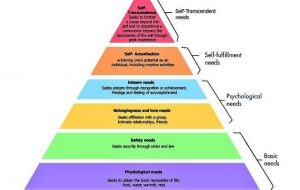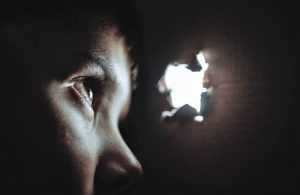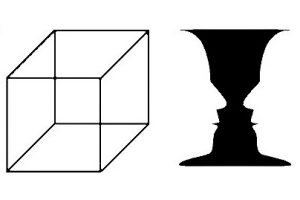Agoraphobia
Agoraphobia is an anxiety problem that involves a person who feels intense fear and tries to avoid places or situations from which it would be difficult to escape in case of a panic attack. This situation can even occur in homes or in situations or places where the person feels helpless or ashamed. The anxiety the person feels is caused by the fear of not having an easy way to escape or of getting help if the anxiety intensifies. Most people who have agoraphobia develop it after having one or more panic attacks, which makes them worry about having another attack and for this reason they try to avoid places where it can happen again. Agoraphobia is also more common in women than in men. It usually begins in adulthood, with 20 years being the average age of onset. However, symptoms of the condition can arise at any age.
What is agoraphobia?
Agoraphobia is an anxiety attack that causes the sufferer to avoid places or situations from which it would be very difficult for them to get out or escape, or to get some kind of help if the problem intensifies.
Etymology
The word agoraphobia comes from the Greek and is formed by the words: “agora”, “square”, and “phobos”, “fear”, and is related to the panic and anxiety disorders, being very common that the two symptoms manifest and interact.
Causes of agoraphobia
The exact cause of agoraphobia is not yet known with certainty. However, there are several factors that increase the risk of developing agoraphobia. These risks include
- Depression.
- Different types of phobias, such as claustrophobia (fear of being locked in a place), social phobia, hydrophobia (fear and phobia of water), acrophobia (fear of heights), nyctophobia (fear of day or night), chronophobia (phobia of weather).
- Different types of anxiety disorders, such as generalized anxiety disorder and obsessive-compulsive disorder.
- History of physical or sexual abuse.
- Substance, medication, or drug abuse.
- Family history of agoraphobia.
Symptoms of agoraphobia
- The person with panic disorder looks for ways to avoid situations where he or she is seen in places from which it may be difficult to escape or where he or she may not be able to seek help with panic symptoms.
- It causes constant fear and anxiety.
- Fear or anxiety is disproportionate to the danger you think you may be in.
- It lasts for six months, even longer.
- Most of those affected are women.
- Patients often suffer from depression symptoms and social phobias.
- Fear of public transportation such as airplanes, buses, trains, automobiles.
- Signs and symptoms can worsen if the person suffers from panic attacks, because in addition to the symptoms mentioned above, you may suffer from increased heart rate, breathing problems, chest pain, dizziness, excessive sweating, upset stomach and fear of death.
Treatment
There are many different treatments for agoraphobia. A combination of these methods will most likely be needed:
- Psychotherapy is also known as talk therapy and involves meeting regularly with a therapist or other mental health professional to discuss fears and any problems that may be contributing to them. Psychotherapy is often combined with medication for greater effectiveness. It is usually a short-term treatment that can be stopped once the patient copes with their fears and anxiety.
- Cognitive behavioral therapy is the most common form of psychotherapy used to treat people with agoraphobia. It helps to understand the distorted feelings and viewpoints associated with agoraphobia and teaches the patient how to work in stressful situations by replacing distorted thoughts with healthy thoughts, allowing them to regain control of their lives.
- Exposure therapy can also help overcome fears. In this type of therapy, the patient is gradually exposed to the situations or places he or she fears. This can cause their fear to diminish over time.
Exercises to treat agoraphobia
The first important thing to do is to learn breathing exercises. When there is an attack, breathing can be affected so this type of exercise helps relaxation and improves lung capacity. Meditation exercises can provide a state of inner peace by controlling the mind. Relaxation exercises are widely used by people with agoraphobia and physical exercise is vital, as it helps to improve the general condition of the body.
Medicines
Some antidepressants called selective serotonin reuptake inhibitors (SSRIs), such as fluoxetine (Prozac) and sertraline (Zoloft), may be used to treat panic disorder with agoraphobia. Other types of antidepressants can also effectively treat agoraphobia.
Anti-anxiety medications called benzodiazepines are sedatives that, in limited circumstances, your doctor may prescribe to temporarily relieve anxiety symptoms. They are usually used only to relieve acute anxiety in the short term. Because they can create habit, these drugs are not a good choice if you have had long-term problems with anxiety or problems with alcohol or drug abuse.
Cases
- Macaulay Culkin who was a well-known American actor, mainly for his role as Kevin McCallister in Home Alone and Home Alone 2: Lost in New York, said he had “self-diagnosed” agoraphobia.
- L. Gold (1914-1996), a science fiction editor who, as a result of trauma during his war experiences, his agoraphobia became so severe that for more than two decades he was unable to leave his apartment.
- Woody Allen, American actor, director and musician.
How to cite this article?
Briceño V., Gabriela. (2019). Agoraphobia. Recovered on 3 January, 2025, de Euston96: https://www.euston96.com/en/agoraphobia/










